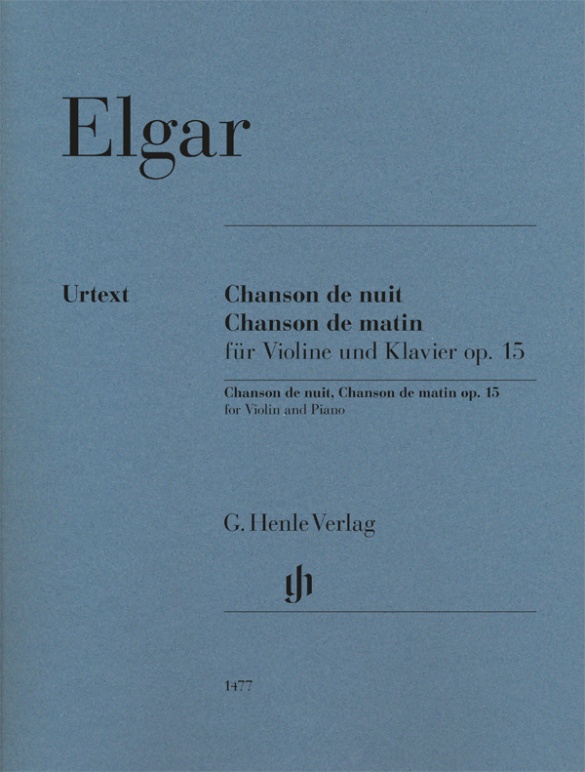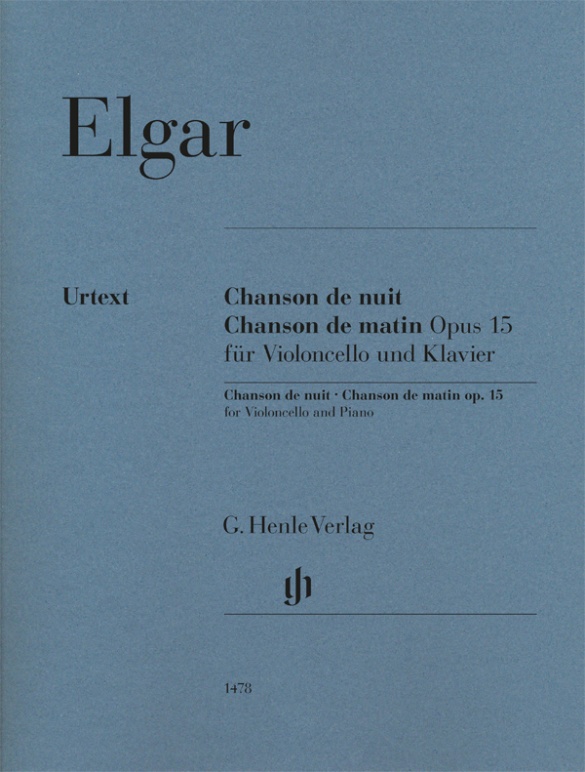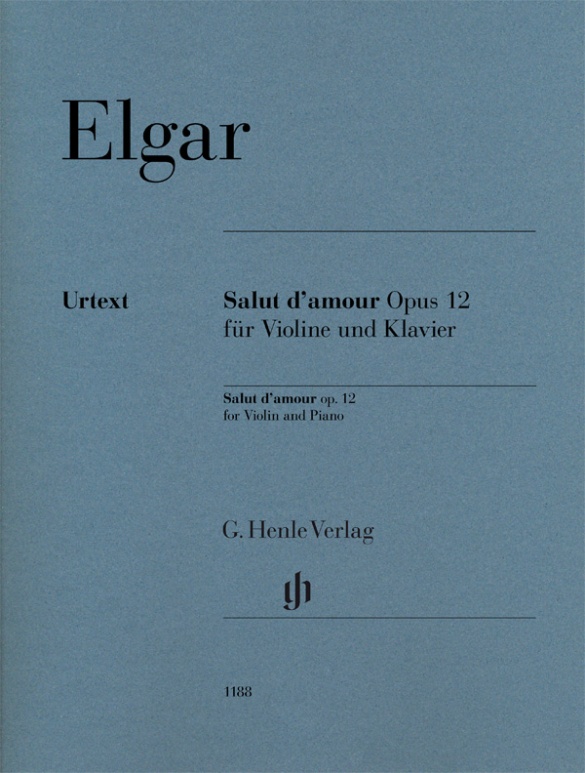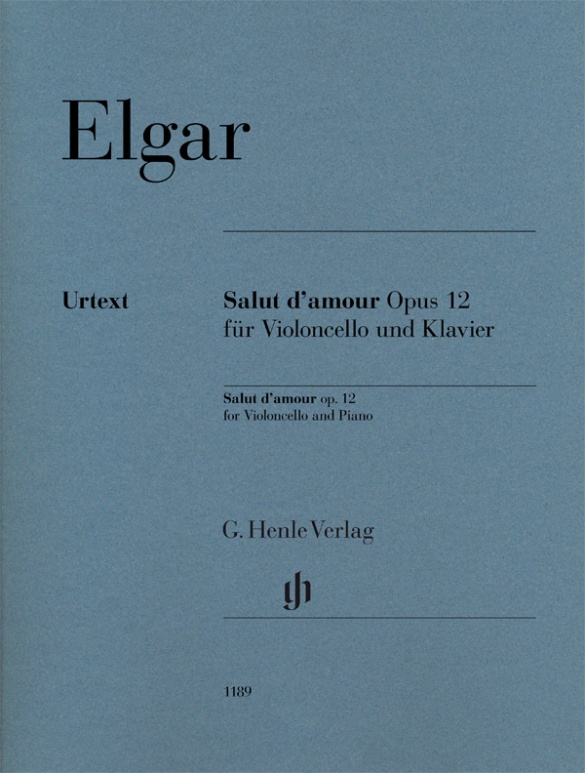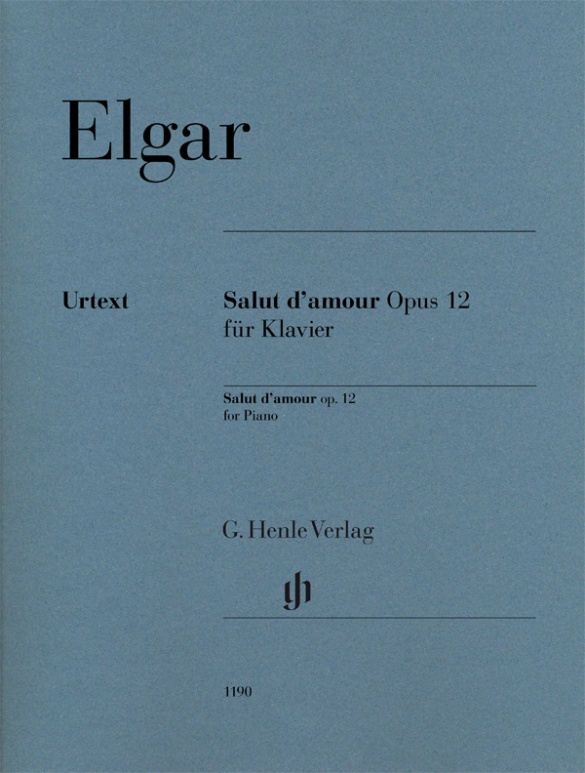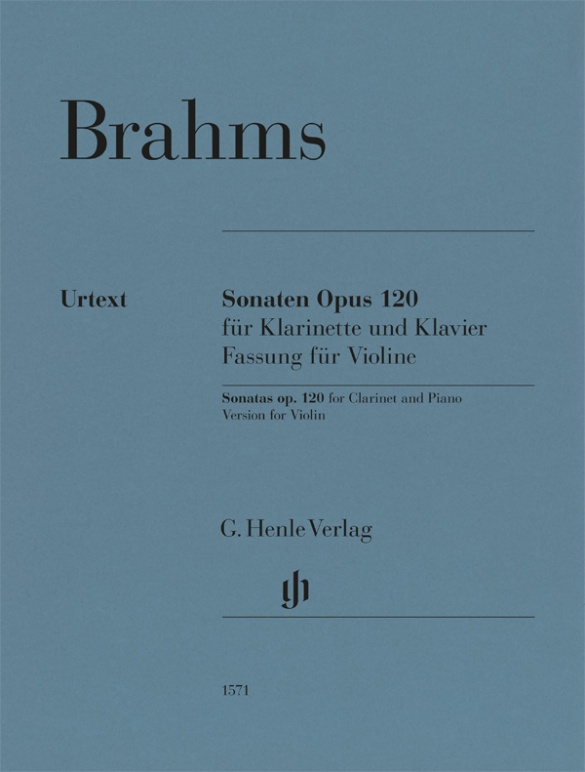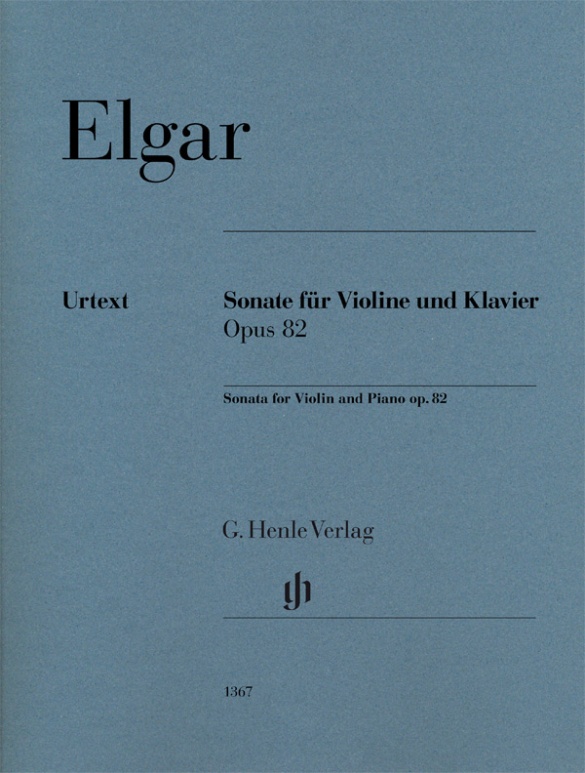

Edward Elgar
Violin Sonata op. 82
Edward Elgar spent the summer of 1918 in the countryside. In August he received reports of the approaching end of the First World War, and this good news so inspired him that he was able to finish an initial draft of his great Violin Sonata in barely four weeks. Writing about it in his diary, he notated laconically: “Wrote some music”. His wife Alice was more enthusiastic: “E. writing wonderful new music, different from anything else of his”. This magnificent music is now available in a Henle Urtext edition by the British violinist and Elgar expert Rupert Marshall-Luck. He has examined and evaluated the many sources according to all the rules of Urtext editing – the sketches, drafts, autograph fair copies, proofs and first edition.
Read more about this edition in the Henle Blog.
Content/Details
About the Composer
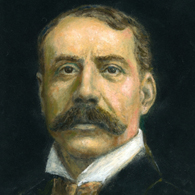
Edward Elgar
Most important English composer of his day. His immense oeuvre comprises numerous choral works, songs with piano and orchestral accompaniment, several stage works, orchestral music of a mostly programmatic character, a few works of chamber music in his last phase, and works for piano and organ.
| 1857 | Born in Broadheath (Worcester) on June 2, the son of a music dealer. First attempts at composition at ten years of age. He is largely an autodidact with rich practical experience. |
| from mid-1870 | He plays in various orchestras in Worcester, including the Worcester Philharmonic Society as well as the Festival Orchestra (under the direction of A. Dvořák and others). From 1878 some of his compositions are performed (sometimes for the first time). |
| from 1882 | He serves variously as conductor of the Worcester Amateur Instrumental Society and the newly founded Worcestershire Philharmonic Society (1889–1904). |
| 1889 | Moves to London. |
| 1889–1903 | Cantata, “The Black Knight,” Op. 25. |
| 1890 | Premiere of the overture “Froissart,” Op. 19, as his first major work. |
| 1891 | Moves to Malvern; activities in the countryside. |
| 1896 | Oratorio, “The Light of Life (Lux Christi),” Op. 29. |
| 1897–99 | “Sea-Pictures,” Op. 37, for contralto and orchestra. |
| after 1897 | He composes works for ceremonial occasions for the English royal court. |
| 1898–99 | Enigma Variations, Op. 36, a musical portrayal of fourteen of his friends. |
| 1899–1900 | Oratorio, “The Dream of Gerontius,” Op. 38, serves as a watershed moment. He receives numerous honors, including honorary doctorates in 1900 and 1907, and in 1911 the Order of Merit. |
| 1901–06 | Oratorios “The Kingdom,” Op. 51, and “The Apostles,” Op. 49. |
| 1904–08 | Professorship at the University of Birmingham. |
| 1908 | Premiere of his Symphony No. 1 in A-flat major, Op. 55; the pinnacle of his success, with 84 performances by 1909. |
| 1909/10 | Violin Concerto in B minor, Op. 61, the first significant English concerto. |
| 1911 | Premiere of his Symphony No. 2 in E-flat major, Op. 63, enjoys little success. |
| 1912 | He moves to London. |
| 1913 | Symphonic study, “Falstaff,” Op. 68. |
| 1918 | Chamber music works, including the Sonata for Violin and Piano in E minor, Op. 82; the String Quartet in E minor; the Piano Quintet in A minor. |
| 1918–19 | Cello Concerto in E minor, Op. 85, a late magnum opus. |
| 1934 | Dies in Worcester on February 23. |
About the Authors

Klaus Schilde (Fingering)
Prof. Klaus Schilde, born in 1926, spent his childhood in Dresden. There he was greatly influenced by Walter Engel, who taught him the piano (Kodaly method), composition and violin. From 1946–1948 he studied at the music conservatory in Leipzig with Hugo Steurer. After moving to the west in 1952 he studied with Walter Gieseking and Edwin Fischer, as well as with Marguerite Long, Lucette Descaves and Nadia Boulanger in Paris.
Schilde won numerous prizes. From 1947 onwards he gave concerts as a soloist and chamber musician on almost every single continent with renowned orchestras. He taught at the music conservatories in East Berlin Detmold, West Berlin, Munich, Tokyo (Geidai) and Weimar. From 1988–1991 he was President of the Staatliche Hochschule für Musik und Theater in Munich, where he also taught for decades as a professor. There are numerous radio and television broadcasts with Klaus Schilde as well as CD recordings. Schilde has contributed fingerings to almost 100 Henle Urtext editions.
Prof. Klaus Schilde passed away on 10 December, 2020.
Product Safety Informations (GPSR)

G. Henle Verlag
Here you can find the information about the manufacturer of the product.G. Henle Verlag e.K.
Forstenrieder Allee 122
81476 München
Germany
info@henle.de
www.henle.com
De grote hoeveelheid bronnen voor dit werk leiden tot een lijvig tekstkritisch commentaar van uitgever Rupert Marshall-Luck, dat veel zegt over de ontstaansgeschiedenis van dit opus, waarbij violist William Reed ruimschoots voor de voltooing van het werk al nauw betrokken was. Henle’s partituur is voorbeeldig vormgegeven. Voor de viool is los een betekende, zowel als een niet betekende versie van de solopartij ingelegd.
de nieuwe muze, 2019There is abundant, informative source material supporting this wonderful publication and the music is beautiful – a two-fold reward for those who purchase a copy. It is even available in the Henle Library app: www.henle-library.com What more could you ask?
Stringendo, 2020recommendations
autogenerated_cross_selling
Further editions of this title
Further editions of this title


